[misunderstanding] does drinking black coffee have to be sour? No, sour is not good coffee?
Professional coffee knowledge exchange more coffee bean information please follow the coffee workshop (Wechat official account cafe_style)
Recently, a little friend asked the editor: editor! Editor! I went to other coffee shops, drank their coffee is very sour, and then their barista told me that this is the original flavor of coffee, to drink black coffee is to drink sour.
This question sounds familiar, and other editors have also wondered through other versions in recent years: the baker said that the coffee bean itself is a kind of fruit, only sour and sweet, and the bitter ones are all bad beans. The barista said that the more sour coffee is, the more it retains the local flavor of coffee beans, so good coffee must have sour taste, and must not add sugar and milk to cover up the original flavor. When drinking coffee, you must drink black coffee.
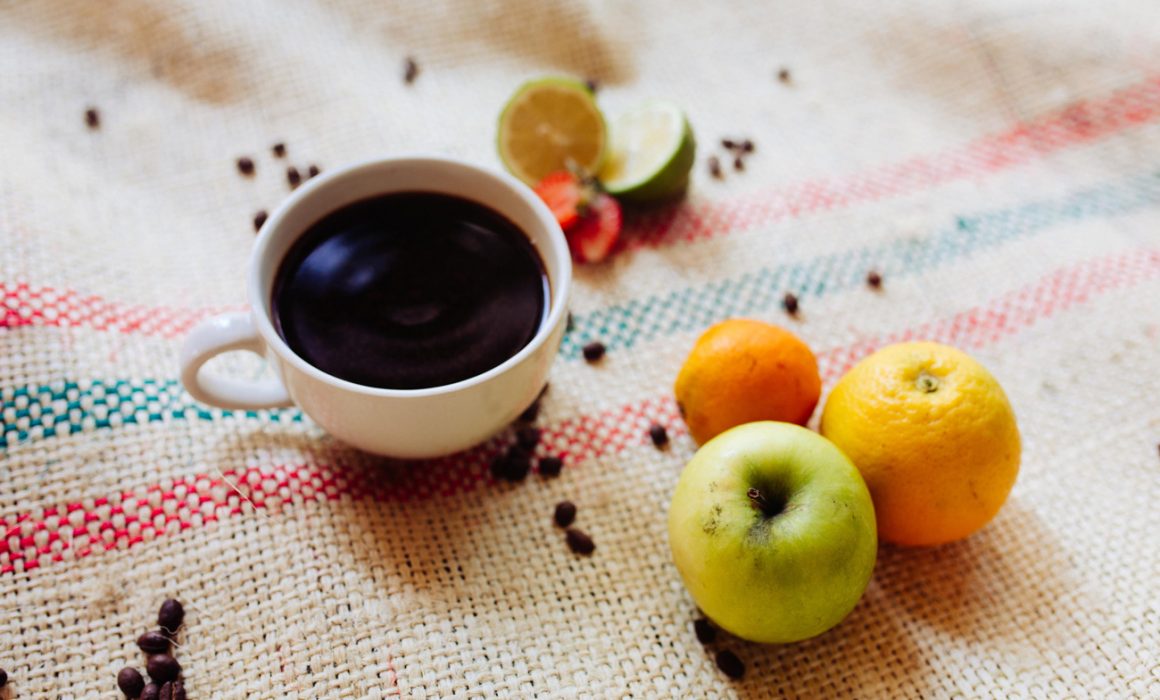
It can be said that feng shui turns in turn. In recent years, everyone is still preaching that "sour coffee is not a bad thing" and "caffeic acid does not mean poor quality". Turn around and explain to consumers that "unsour coffee is not a bad thing" and "sour coffee is not equal to high quality". Sometimes the editor really doesn't understand what is on the mind of those coffee shop owners who only sell shallow baked beans. Do you have to overdo it and confuse consumers in order to sell beans?
Coffee beans are not fruits, and the original flavor of coffee beans is not just sour.
Coffee beans are not fruits, but "seeds of fruits", similar to the mango kernels we see every day. So here comes the problem. I've only heard that mangoes are sour and watermelons are sweet. I've never heard of mango kernels and watermelon seeds being sour and sweet. So where does the so-called original flavor come from?
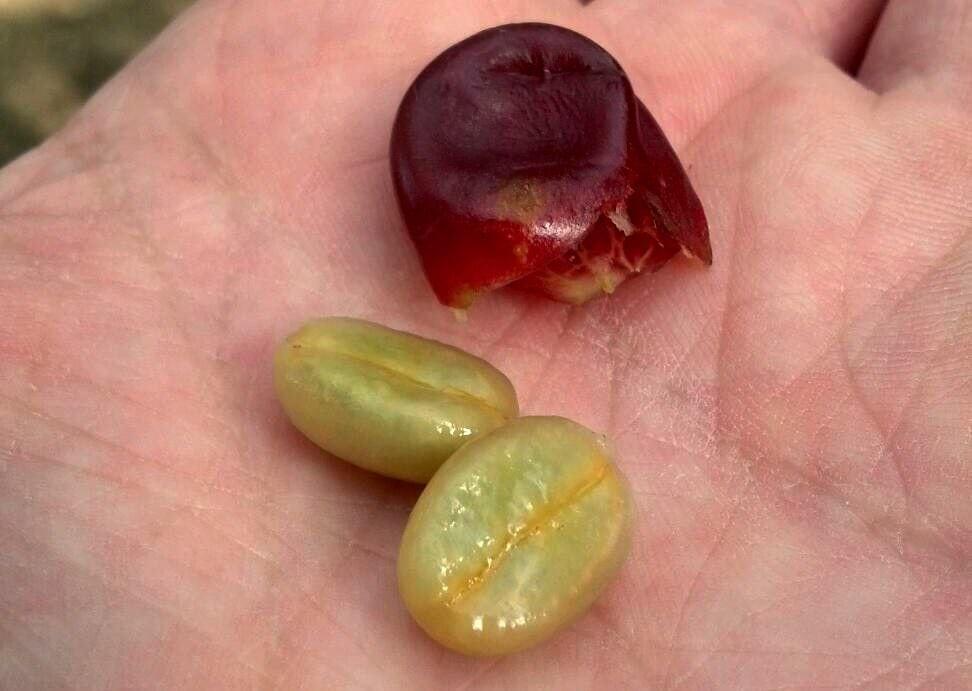
The answer is baking. Many bean bakers mistakenly believe that the shallower the more sour they are, the more they can retain the unique flavor and "regional characteristics" of coffee varieties, but they do not realize that the raw coffee beans themselves are not sour, and the sour taste is formed through baking.
In the process of baking, the temperature of the beans will gradually rise, making the ingredients in the coffee beans begin to change chemically, and bit by bit to form the color, bitterness, sour taste, aroma and other characteristics of the coffee beans.
Shallow baked beans are still in the early stage of enzyme action and Mena reaction, and the organic acids of coffee beans have not been completely cracked, so the sour taste will be eye-catching and bitter, so it is very suitable for friends who like sour coffee. The flavor is mainly composed of sour aroma, cinnamon, grain and toast.
In the process of baking, caramelization reacts more with Mena, and although it still has a sour flavor, it is obviously weaker than shallow baking. At this time, the sour and bitter is more neutral, so the sweet flavor is more prominent, very palatable, changing to caramel, chocolate and so on. This degree of roasting is usually regarded as the degree of roasting that gives off the best characteristics of boutique coffee.
Medium-deep baking or even deep baking, when the baking process has been mostly completed, leaving the end of the dry cracking products, so mainly resin, wine smell, scorched aroma, bright sour taste almost disappeared, bitterness aggravated, the flavor is more mellow, very suitable with milk to make lattes to drink.
Black coffee is not necessarily sour!
The acidity of coffee has a great relationship with the variety of coffee beans and the degree of roasting, because coffee beans will fully absorb the acid of pulp in the process of growth and processing, so that coffee beans will have acidity. In terms of varieties, high-quality Arabica coffee beans are more acidic, so coffee beans produced in Kenya, Guatemala, Costa Rica and other places are more or less acidic.
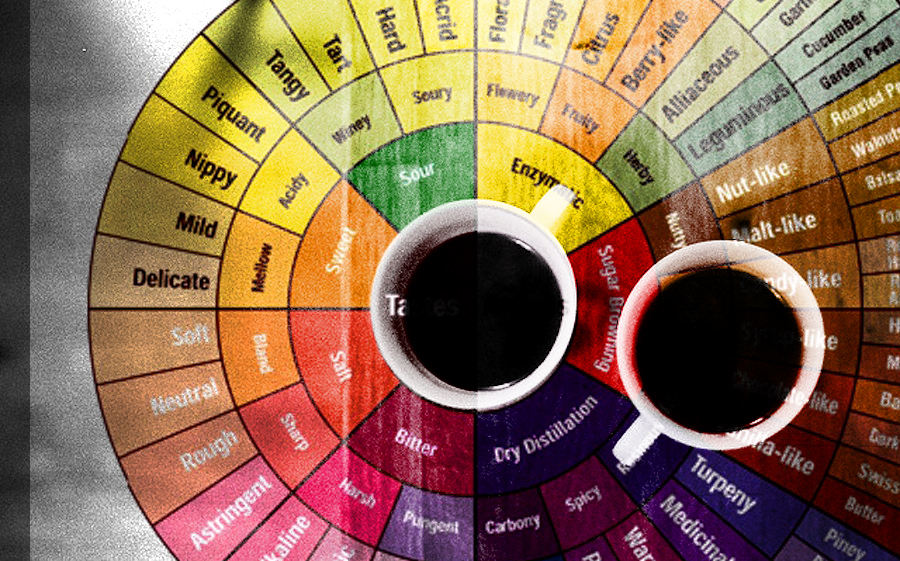
Although many people can not accept the high acidity of coffee, but the people who like it actually like the charming sour taste! The acidity of this kind of coffee is lively, bright and full of changing layers. At the beginning of the mouth, you will feel the obvious acidity stimulation, then turn into lemon, citrus-like fragrance, and finally show a smooth and bright sweet fragrance.
The depth of roasting also affects the "bitterness" and "acidity" of coffee. The deeper the roast, the lower the acidity, and the bitterness will increase accordingly. If you like the high acidity and multi-layered taste, you can choose shallow roasted African and Central American beans, such as Kenya, Ethiopia, Panama, Costa Rica and so on. Those who like rich incense and sweet aftertaste can choose Asian deep-baked beans, such as Manning, West Java and Brazil (South America) and so on.
Caffeic acid is also divided into "good" and "bad"!
The acidity of coffee is not all the same. The special terms of the coffee world are "fragrant acid acidity" and "dead acid sour" as the difference between the two.
To put it bluntly, "dead acid sour" is caused by improper planting, baking and cooking, resulting in an unpleasant sour feeling, which is usually accompanied by a "sharp" feeling, which is why most people don't like the sour taste of coffee. Some coffee beans are roasted too shallow, the fiber tissue in the beans is not ripe at all, the flavor development is not complete, and the water content is not clean, so it will be quite raw and sour.
And "fragrant acid acidity" is the characteristic of coffee beans, the acid with flawless quality will bring refreshing flavor and promote saliva secretion, bring richer connotation to sour taste, and make the overall taste clearer and brighter. For example: the aroma is obviously fresh and pleasant, similar to fruit-like flavor, or soft and round acidity, all mean that this cup is a "high-quality sour" coffee.
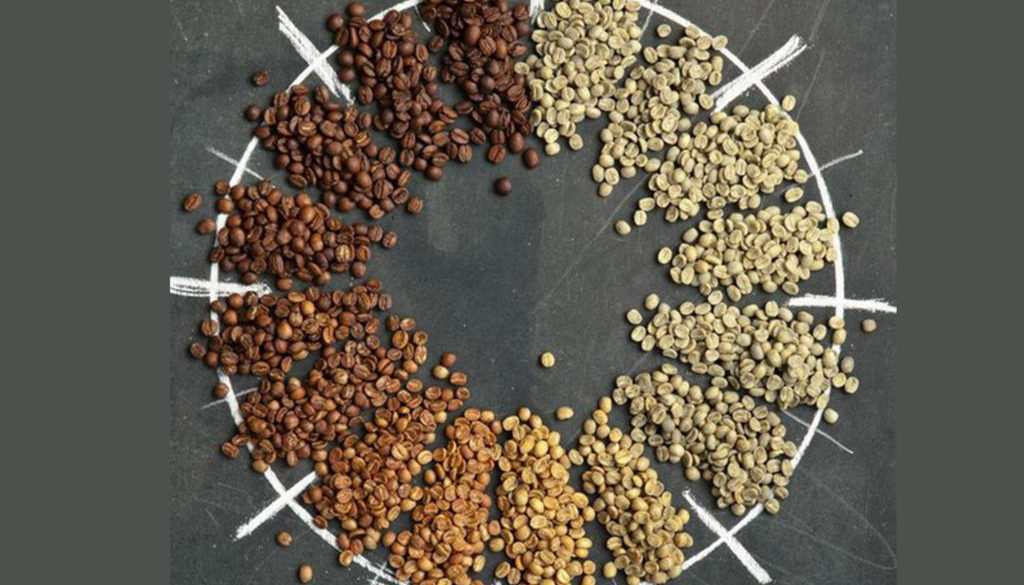
The strength and weakness of the acid itself does not represent the quality. Whether the coffee is sour or not, whether it is "good" acid or "bad" acid depends on the variety of coffee beans and the degree of baking. The shorter the baking time, the lower the degree of caramelization. At this time, organic acids are still retained in the beans, so it is easy to produce sour taste. On the contrary, the longer the baking time, the less likely it is to have a sour taste. In addition, the temperature of brewing coffee also affects, lower temperature water is also easier to brew coffee with acidity than high temperature water, people who are afraid of acid had better drink it while it is hot, otherwise the sour taste of coffee will become more obvious with the decrease of temperature.
In other words, any attempt to sink all "sour coffee" and "bitter coffee" with one pole is one-sided. Evaluating the sour quality of coffee is different from judging the sour taste. As a professional coffee worker, he should have more sensitive and delicate senses than consumers, as well as the professional spirit of objective judgment and analysis. If a cup of coffee is not good for guests, is there any reason to call it "good coffee"? Good coffee is not equal to sour coffee, and sour coffee does not necessarily taste good. At least this kind of sour coffee, which is unacceptable to guests, is definitely caused by the poor quality of raw beans, wrong baking concept, improper brewing operation, or poor consumer guidance, which is one or more of the "mistakes".
END
Important Notice :
前街咖啡 FrontStreet Coffee has moved to new addredd:
FrontStreet Coffee Address: 315,Donghua East Road,GuangZhou
Tel:020 38364473
- Prev
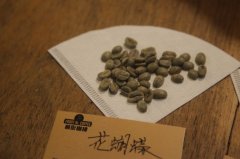
The front street coffee teaches you how to make a flower butterfly coffee bean from Panama!
Professional coffee knowledge exchange more coffee bean information Please follow the coffee workshop (Wechat official account cafe_style) the front street coffee is often asked by guests, how to make the Panamanian butterfly this bean? So today, in front of the street coffee, let's share how we brew Panamanian butterflies.
- Next

Webcast tuyere heats up Starbucks Taobao Live 5 hours sells 160000 cups of coffee
Starbucks, is this an epoch-making symbol or an epoch-making label? I don't know since when, coffee has become a drink with a sharp increase in consumption in China. With the continuous growth of China's economy, Starbucks is like a water-absorbing sponge, and its stores in China are expanding faster and faster.
Related
- What is the difference between Indonesian Sumatra Mantinin coffee and gold Mantinin? How to distinguish between real and fake golden Mantelin coffee?
- What does bypass mean in coffee? Why can hand-brewed coffee and water make it better?
- Unexpected! Ruixing Telunsu lattes use a smoothie machine to foam milk?!
- % Arabia's first store in Henan opens into the village?! Netizen: Thought it was P's
- Does an authentic standard mocha coffee recipe use chocolate sauce or powder? Mocha Latte/Dirty Coffee/Salty Mocha Coffee Recipe Share!
- What is the difference between Vietnam egg coffee and Norway egg coffee? Hand-brewed single product coffee filter paper filter cloth filter flat solution!
- What is the difference between sun-cured and honey-treated coffee? What are the differences in the flavor characteristics of sun-honey coffee?
- How to make Italian latte! How much milk does a standard latte use/what should the ratio of coffee to milk be?
- How to make butter American/butter latte/butter Dirty coffee? Is hand-brewed coffee good with butter?
- Is Dirty the cold version of Australian White? What is the difference between dirty coffee/decent coffee and Australian white espresso?

